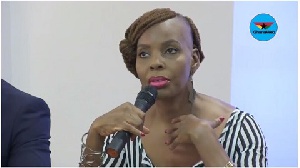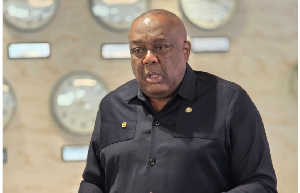Expecting ‘purity’ from an investigative journalist is the last thing anybody should do because the skill in itself requires using ‘active lies’ to unveil ‘messy truths’, Award-winning journalist, Esther Armah has said.
Unlike the mainstream journalism which requires that media persons use their real identities and go straightforward to retrieve information and the likes she says, investigative journalism requires that people go ‘undercover’, disguise themselves and sometimes go the extra mile by invading on the privacy of others just so the ‘messy truth’ can be unveiled for the larger good of the general public.
“It is right to interrogate the ethics but we must not confuse integrity with purity. Investigative journalism is not a pure form of journalism, it cannot be because the definition of undercover filming is an active lie to unveil a messy truth so you are not walking up to someone to say ‘My name is Esther Armah, there is an allegation that Matilda has been doing some wahala in some place and I want to hear whether or not that is the truth which is the most traditional form within which journalism tries to uncover information but that is not what investigative journalism is”, she noted.
Speaking at a forum held by the Africa Centre for International Law and Accountability (ACILA), she highlighted the need for the media fraternity in Ghana to think of and develop an investigative arm of the industry so that all other investigative journalists can operate more easily especially in this challenging environment where the very same people the media wants to expose are in charge of some high public institutions including private media houses.
“What has happened particularly in Ghana is that we already have a necessary reckoning. Because we already have politicians who own media houses, that is already a conflict of interest and it impacts the way in which we have the discussion in ways which are problematic. It offers us in Ghana an opportunity to interrogate how we do media particularly in the private media houses and the importance of creating a robust investigative, journalistic arm of our industry so that it’s not just down to the individual Anas who is doing his work but it’s about strengthening this arm of our industry”, she stated.
The forum dubbed “undercover journalism; the ethics, public interest and the law”, was held Tuesday June 12 to discuss issues pertaining ethics in investigative journalism following the explosive expose of ace journalist Anas Aremeyaw Anas which has sparked massive public debate.
The video captured a number of GFA and NSA officials headed by resigned GFA President, Kwesi Nyantakyi, engaging in various corrupt deals to influence matches.
While many have argued that his method of retrieving information is deceitful, pretentious and rather unethical, many others have argued that he wouldn’t have gotten the absolute truth if he hadn’t adopted the ‘secret filming’ method to investigate.
General News of Tuesday, 12 June 2018
Source: www.ghanaweb.com













